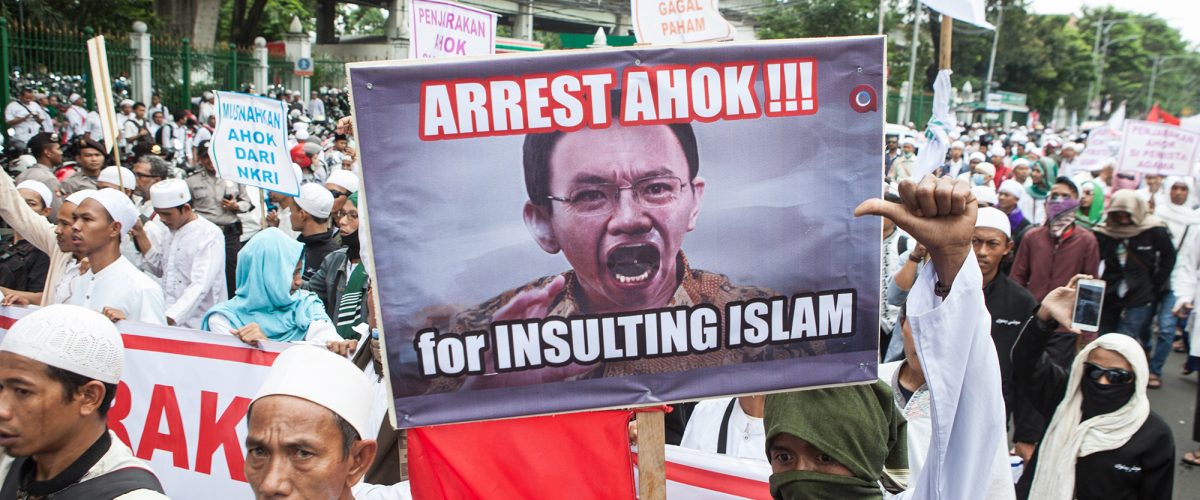A U.S. agency has added 11 nations to its list of countries willing to use fines, imprisonment or the death penalty to punish those accused of insulting religious beliefs or institutions.
The U.S. Commission on International Religious Liberty increased its list of the number of countries with blasphemy laws from 84 in 2020 to 95 this year, a 13% increase. The list includes democracies, theocracies and several traditional American allies spanning the globe.
The commission’s newly released report defines blasphemy as any “act of insulting or showing contempt or lack of reverence for God or sacred things,” while laws criminalizing the behavior typically seek to “punish expressions or acts deemed blasphemous, defamatory of religions, or contemptuous of religion or religious symbols, figures or feelings.”
But whether the ordinances call for fines, imprisonment or capital punishment, such measures violate basic human rights standards established by the United Nations General Assembly, USCIRF said. “Under international human rights law, freedom of religion or belief includes the right to express a full range of thoughts and beliefs, including those that others might find blasphemous.”
“Under international human rights law, freedom of religion or belief includes the right to express a full range of thoughts and beliefs, including those that others might find blasphemous.”
While proponents of blasphemy rules and practices claim they promote social harmony, “in practice, blasphemy laws empower government officials to punish individuals who express minority viewpoints. In Bangladesh, a tribunal recently sentenced a Hindu man to seven years in prison for allegedly insulting Islam in a Facebook post,” the report said. “In Russia, blasphemy charges are often, though not exclusively, used to target individuals who are perceived to have insulted the Russian Orthodox Church.”
Yet nearly half the world’s nations have adopted blasphemy laws, often claiming the provisions promote internal security and social and religious cohesion, the agency said. “Blasphemy laws can be contained in a variety of legal instruments, including constitutions and statutory laws, and are often part of national penal codes.”
The countries USCIRF added to its 2023 blasphemy fact sheet are the Bahamas, Barbados, El Salvador, Guatemala, Cambodia, Kiribati, Solomon Islands, Tuvalu, Monaco, Portugal and Cape Verde.
Language from the Bahamian constitution and penal code, which USCIRF provides for the nations listed, declares itself a Christian nation where the sale of “any blasphemous book, writing or representation shall be liable to imprisonment for two years.”
In newly added Monaco, where Catholicism is the state religion, anyone “who has, by word or gesture, desecrated the objects of worship, either in the places intended or currently used for its exercise … or even outraged the ministers of religion in their functions” can face one to six months imprisonment and a fine.
A nation’s addition to the list does not necessarily mean its anti-blasphemy practices are new. The same holds for countries whose maximum sanction designations have changed. Saudi Arabia, for example, was listed with “no sanction specified” in 2020, but now has joined Brunei, Iran, Mauritania and Pakistan as those open to the death penalty in blasphemy cases.
And a country’s absence from a maximum punishment designation may not preclude it from using those sentences. Afghanistan is currently described as having no specific sanction for blasphemy, but the Taliban has stated a reliance on a form of Islamic jurisprudence that designates blasphemy as a capital offense, USCIRF explained.
Italy is included with Columbia, Spain, Switzerland, Tajikistan and Turkmenistan as countries that levy fines for blasphemy. Its criminal code includes a provision for up to a year in prison for anyone who “insults the state religion,” which is Catholicism.
Eighty nations include imprisonment for blasphemy violations, USCIRF said. In addition to the Bahamas, they include Austria, Brazil, Germany, Finland, Burma, Cambodia, Egypt, India, Israel, Ukraine and Yemen.
“Individuals accused of blasphemy risk retribution from individuals and non-state actors in addition to government officials.”
Countries in all categories span the globe, with 13 in the Americas, 28 in the Asia Pacific region, 16 in Europe, 18 in the Middle East and North Africa and 20 in Sub-Saharan Africa.
Such laws, however light the punishment called for, foster discrimination and intolerance against religious minorities, USCIRF added. “While it is legitimate for individuals to speak out against blasphemy, legislation criminalizing blasphemy violates the right to freedom of religion or belief and the right to freedom of opinion and expression. International human rights law protects the rights of individuals; it does not protect religious feelings, figures or symbols from behavior or speech considered blasphemous.”
Another danger of blasphemy laws is that they open the door to persecution and mob justice, the report explains. “Individuals accused of blasphemy risk retribution from individuals and non-state actors in addition to government officials. In February 2023, a crowd in Pakistan stormed a police station and killed a man being held on suspicion of blasphemy. … In May 2023, Sri Lankan authorities arrested stand-up comedian Jayani Natasha Edirisooriya for allegedly ‘defaming Buddhism’ during a comedy show.”
Blasphemy statutes also can be manipulated by individuals to settle personal or business disputes, USCIRF said. “In January 2023, the colleague of a Christian woman working with Pakistan’s Civil Aviation Authority threatened to accuse her of blasphemy following a workplace dispute. In July 2022, a Pakistani court reportedly sentenced Ashfaq Masih to death for blasphemy. The blasphemy allegation emerged following a dispute Masih, a bicycle mechanic, had with a customer.”


